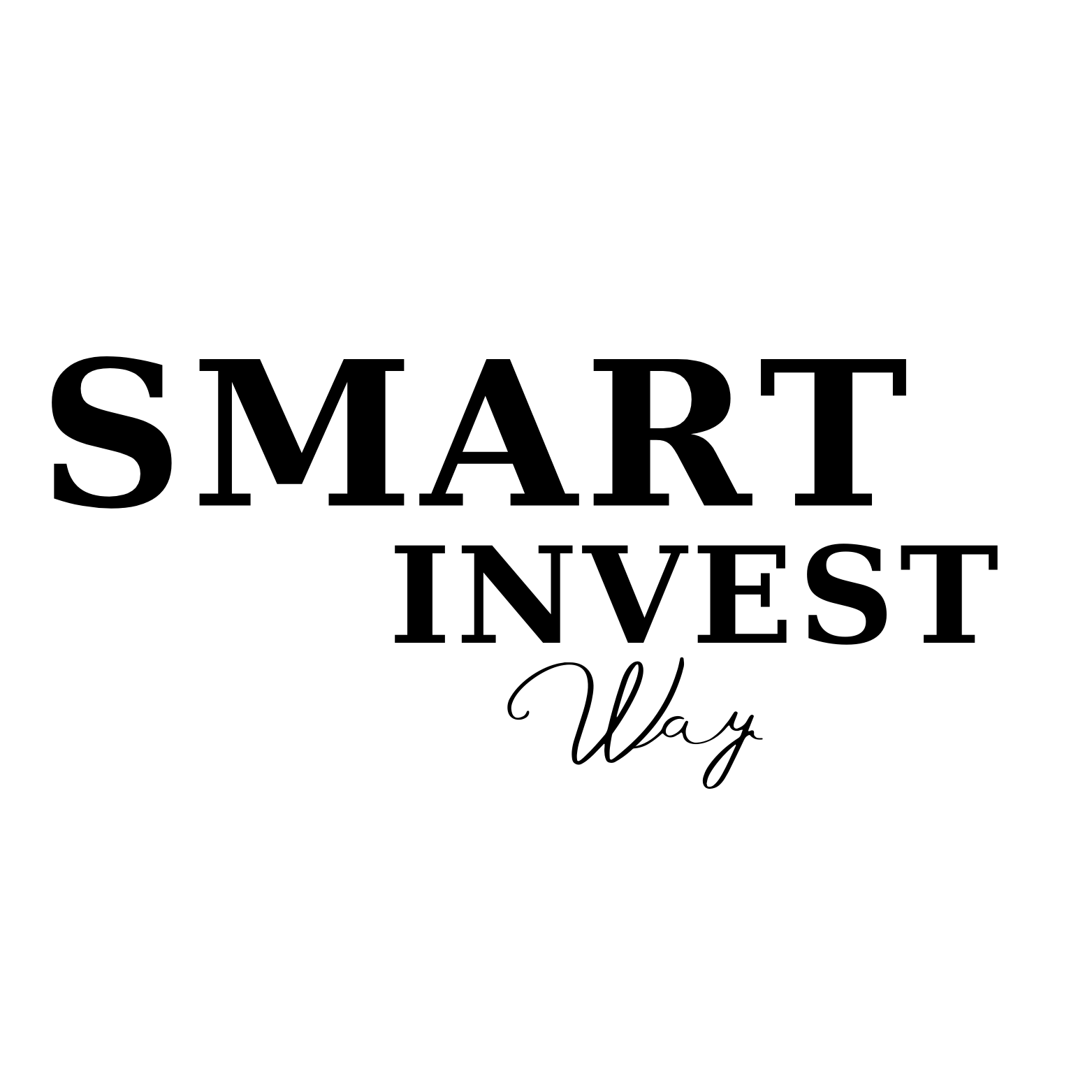Table of Content
Table of Contents
Are you dreaming of breaking free from the 9-to-5 grind and achieving true financial freedom? You’re not alone. Millions are on the quest for financial independence (FI)—that magical point where your investments generate enough income to cover your expenses, liberating you from dependence on a traditional job.
While the journey to financial independence requires discipline and strategic planning, one of the most powerful tools at your disposal is knowledge. The right books can provide the roadmap, strategies, and mindset shifts necessary to transform your financial reality.
In this comprehensive guide, we’ve curated the absolute best financial independence books available today. From foundational texts that will set beginners on the right path to advanced strategies for seasoned investors, this financial independence reading list has everything you need to accelerate your journey to freedom.
Quick Answer: The most impactful financial independence books include “Your Money or Your Life” by Vicki Robin and Joe Dominguez, “The Simple Path to Wealth” by JL Collins, “Set for Life” by Scott Trench, “Quit Like a Millionaire” by Kristy Shen and Bryce Leung, and “Financial Freedom” by Grant Sabatier.
Foundational Books for Your FI Journey (Beginners)
Your Money or Your Life by Vicki Robin and Joe Dominguez
Overview: “Your Money or Your Life” is the definitive guide to transforming your relationship with money and achieving financial independence.
Why It’s Essential for FI: This groundbreaking book introduces the concept of “enough” and shows readers how to evaluate expenses in terms of “life energy”—the hours of your life exchanged for money. It provides a 9-step program that helps you track income and expenses, eliminate debt, save more, and ultimately achieve financial independence.
Key Actionable Takeaways:
- Calculate your real hourly wage by factoring in all work-related expenses and time
- Track every penny that comes into or leaves your life
- Evaluate purchases by asking if they provide fulfillment proportionate to life energy spent
- Follow the “crossover point” concept to determine when investment income exceeds expenses
- Learn to live well for less while increasing your quality of life
Who It’s Best For: Anyone just starting their FI journey who needs a complete mindset reset about the relationship between money, time, and happiness.
The Simple Path to Wealth by JL Collins
Overview: “The Simple Path to Wealth” is a straightforward, no-nonsense guide to investing for financial independence.
Why It’s Essential for FI: Originally written as letters to the author’s daughter, this book demystifies investing and presents a simple, effective strategy centered around low-cost index funds. Collins breaks down complex concepts into easy-to-understand language while providing a clear investment philosophy that minimizes fees and maximizes long-term growth.
Key Actionable Takeaways:
- Understand why low-cost index funds outperform most actively managed investments
- Learn to navigate market volatility without emotional reactions
- Master the simple portfolio allocation strategy that works in all market conditions
- Identify and avoid wealth-destroying investment products and behaviors
- Implement tax-advantaged investment strategies for accelerated wealth building
Who It’s Best For: New investors who want a clear, simple investment strategy without getting bogged down in complexity or technical jargon.
Set for Life by Scott Trench
Overview: “Set for Life” is a tactical guide to achieving financial freedom before traditional retirement age.
Why It’s Essential for FI: This book specifically targets young professionals who want to aggressively pursue financial independence. Trench outlines a three-phase approach that starts with saving 50% of income, moves to house hacking and real estate, and culminates with building significant investment income.
Key Actionable Takeaways:
- Implement extreme savings strategies to accumulate your first $25,000 rapidly
- Use house hacking to drastically reduce or eliminate housing costs
- Build a portfolio of income-producing assets strategically
- Create systems that generate passive income without active management
- Design your path to reaching financial independence within 10-15 years
Who It’s Best For: Young professionals with few financial obligations who want to aggressively pursue FI through a combination of frugality and real estate investing.
The Psychology of Money by Morgan Housel
Overview: “The Psychology of Money” is a collection of 19 short stories exploring the strange ways people think about money.
Why It’s Essential for FI: This book acknowledges that successful money management isn’t necessarily about what you know, but about how you behave. Housel shows that financial success is more about behavior than intelligence, highlighting why smart people often make poor financial decisions.
Key Actionable Takeaways:
- Recognize that your personal experiences shape your relationship with money, often irrationally
- Understand the critical difference between being rich and being wealthy
- Learn to manage risk through reasonable financial planning rather than optimization
- Appreciate that wealth is what you don’t see—money not spent
- Develop reasonable expectations about money and happiness
Who It’s Best For: Those who struggle with the emotional and psychological aspects of money management and want to develop healthier financial behaviors.
Books on Investing & Wealth Building for FI
The Bogleheads’ Guide to Investing by Taylor Larimore, Mel Lindauer, and Michael LeBoeuf
Overview: “The Bogleheads’ Guide to Investing” is a comprehensive guide to low-cost index fund investing based on the philosophy of Vanguard founder John Bogle.
Why It’s Essential for FI: This book explains why simplicity trumps complexity in investing. It outlines a sustainable, low-maintenance investment strategy that avoids timing the market, picking individual stocks, or paying excessive fees to financial professionals.
Key Actionable Takeaways:
- Build a simple portfolio using just 3-4 index funds
- Understand asset allocation and how to adjust it throughout your life stages
- Learn tax-efficient investment placement strategies
- Master proper rebalancing techniques to maintain your risk level
- Implement dollar-cost averaging to reduce market timing risk
Who It’s Best For: Investors who want a proven, systematic approach to investing with minimal fees and complexity.
A Random Walk Down Wall Street by Burton Malkiel
Overview: “A Random Walk Down Wall Street” is the classic guide to successful stock market investing that challenges conventional wisdom.
Why It’s Essential for FI: This book presents compelling evidence for the efficient market hypothesis, explaining why most active investors underperform market averages. Malkiel provides a thorough education on various investment products while advocating for a passive investing approach.
Key Actionable Takeaways:
- Understand why attempting to beat the market is generally futile
- Learn to identify investment bubbles and avoid common investor psychological traps
- Develop a long-term investment strategy based on your age and risk tolerance
- Implement a globally diversified portfolio using low-cost index funds
- Recognize the value of patience and discipline in investment success
Who It’s Best For: Critical thinkers who want to understand the theory behind passive investing before committing to this strategy.
The Millionaire Next Door by Thomas J. Stanley and William D. Danko
Overview: “The Millionaire Next Door” is a research-based examination of the habits and characteristics of America’s wealthy.
Why It’s Essential for FI: This landmark study reveals that most millionaires live well below their means, invest systematically, and avoid conspicuous consumption. The book shatters common misconceptions about wealth and provides a blueprint for sustainable wealth accumulation.
Key Actionable Takeaways:
- Recognize that high income does not equal wealth—what you keep matters more than what you earn
- Adopt the seven common traits of self-made millionaires
- Learn to resist social pressure for lifestyle inflation
- Understand the importance of financial independence as a family value
- Implement strategies to avoid becoming a “wealth dissipator”
Who It’s Best For: Those who need motivation to resist consumerism and adopt the frugal mindset necessary for building wealth.
The Four Pillars of Investing by William Bernstein
Overview: “The Four Pillars of Investing” is a comprehensive framework for building a solid investment strategy based on four fundamental principles.
Why It’s Essential for FI: Bernstein breaks down investing into four critical components: theory, history, psychology, and business. This holistic approach helps investors develop both the knowledge and temperament required for long-term success.
Key Actionable Takeaways:
- Understand the relationship between risk and return across different asset classes
- Learn from history’s investment booms and busts to avoid repeating mistakes
- Master your emotional responses to market fluctuations
- Recognize conflicts of interest in the financial services industry
- Design an investment portfolio that balances return potential with acceptable risk
Who It’s Best For: Detail-oriented investors who want a deeper understanding of investment theory and market history before implementing their strategy.
Mastering the Mindset: Books for FI Psychology
Quit Like a Millionaire by Kristy Shen and Bryce Leung
Overview: “Quit Like a Millionaire” is a mathematical approach to financial independence from a couple who retired in their early 30s.
Why It’s Essential for FI: Shen and Leung provide a step-by-step blueprint for achieving early retirement through disciplined saving and investing. Their formula-based approach simplifies complex financial decisions and helps readers develop a bulletproof retirement portfolio.
Key Actionable Takeaways:
- Apply the concept of “scarcity thinking” to dramatically increase savings rate
- Use geographic arbitrage to accelerate wealth building
- Implement the “Yield Shield” strategy to protect retirement income during market downturns
- Create a mathematically sound withdrawal strategy for early retirement
- Navigate healthcare, taxes, and other challenges of unconventional retirement
Who It’s Best For: Analytical thinkers who respond well to formulas and want a data-driven approach to achieving financial independence.
Early Retirement Extreme by Jacob Lund Fisker
Overview: “Early Retirement Extreme” is a philosophical and practical guide to radical financial independence through extreme frugality.
Why It’s Essential for FI: This book presents a framework for reducing expenses to 25% or less of income, enabling very rapid progress toward financial independence. Fisker challenges conventional consumer culture and presents an alternative lifestyle centered on self-sufficiency and minimal consumption.
Key Actionable Takeaways:
- Develop a systems-thinking approach to all aspects of life
- Restructure your lifestyle to dramatically reduce expenses in all categories
- Master the Renaissance ideal of becoming highly skilled across multiple domains
- Learn to provide for your own needs rather than outsourcing them
- Create a resilient life that requires minimal monetary support
Who It’s Best For: Those willing to make radical lifestyle changes to achieve financial independence in 5-7 years rather than decades.
Die with Zero by Bill Perkins
Overview: “Die with Zero” is a provocative examination of how to balance saving for the future with living fully in the present.
Why It’s Essential for FI: This book challenges the assumption that maximizing wealth is the ultimate goal. Perkins argues that money is a means to create positive life experiences, not an end in itself, and provides a framework for optimizing your “experience curve” throughout life.
Key Actionable Takeaways:
- Understand your “time value of money” alongside the “money value of time”
- Create a lifetime net fulfillment curve to guide financial decisions
- Identify memory dividends—experiences that continue to provide value long after they occur
- Plan strategic “money buckets” for different life stages
- Develop an intentional plan for using wealth before you die
Who It’s Best For: Those who have already built substantial savings and need guidance on balancing wealth accumulation with enjoying life’s experiences.
Playing with FIRE by Scott Rieckens
Overview: “Playing with FIRE” is a firsthand account of one family’s journey into the FIRE (Financial Independence, Retire Early) movement.
Why It’s Essential for FI: Through personal narrative, Rieckens provides an accessible introduction to FIRE principles and the emotional challenges of transitioning from a high-consumption lifestyle to one focused on financial independence.
Key Actionable Takeaways:
- Calculate your FI number and timeline
- Navigate difficult conversations with family about lifestyle changes
- Find a sustainable level of frugality that doesn’t lead to deprivation
- Build a supportive community to reinforce your financial independence journey
- Balance short-term happiness with long-term financial goals
Who It’s Best For: New FIRE enthusiasts who need relatable guidance on implementing financial independence principles in a real-world setting.
Frugality & Lifestyle Design for Financial Independence
Meet the Frugalwoods by Elizabeth Willard Thames
Overview: “Meet the Frugalwoods” is a memoir of one couple’s journey from conventional urban professionals to homesteaders pursuing financial independence.
Why It’s Essential for FI: Thames demonstrates how intentional frugality can be a joyful choice rather than a deprivation. The book provides practical strategies for dramatic expense reduction while increasing life satisfaction.
Key Actionable Takeaways:
- Distinguish between meaningful and meaningless expenditures
- Master the art of creative frugality in everyday life
- Develop skills to replace services you currently pay for
- Create systems for avoiding impulse purchases
- Build community connections that enhance life while reducing expenses
Who It’s Best For: Those looking to embrace frugality as a positive lifestyle choice rather than a temporary sacrifice.
Financial Freedom by Grant Sabatier
Overview: “Financial Freedom” is a comprehensive blueprint for fast-tracking financial independence through both income generation and strategic saving.
Why It’s Essential for FI: Unlike many FI books that focus primarily on cutting expenses, Sabatier emphasizes building multiple income streams alongside smart investing. He provides actionable strategies for side hustles, career advancement, and entrepreneurship.
Key Actionable Takeaways:
- Calculate precisely how much money you need for your unique vision of financial freedom
- Optimize your full-time job for maximum earning potential
- Launch side hustles that leverage your existing skills
- Implement the 7-step accelerated investment strategy
- Create systems for passive income generation
Who It’s Best For: Ambitious individuals who want to focus on increasing income alongside reducing expenses to achieve FI faster.
Choose FI by Chris Mamula, Brad Barrett, and Jonathan Mendonsa
Overview: “Choose FI” is a practical guide to financial independence based on the popular ChooseFI podcast.
Why It’s Essential for FI: This book distills wisdom from hundreds of interviews with people on the path to financial independence. It provides multiple paths to FI based on different life situations and preferences, emphasizing that there’s no one-size-fits-all approach.
Key Actionable Takeaways:
- Identify and eliminate the top five FI wealth destroyers
- Optimize your “big three” expenses—housing, transportation, and food
- Implement tax optimization strategies for accelerated wealth building
- Design your ideal life first, then create financial plans to support it
- Join and contribute to the FI community for ongoing support and ideas
Who It’s Best For: Practical action-takers who want a variety of tactical approaches to financial independence rather than a rigid system.
The $100 Startup by Chris Guillebeau
Overview: “The $100 Startup” A guide to launching microbusinesses with minimal investment that can fund a life of freedom.
Why It’s Essential for FI: This book showcases how small entrepreneurial ventures can create financial independence without requiring venture capital or large upfront investments. Guillebeau provides case studies of successful entrepreneurs who built income-generating businesses from modest beginnings.
Key Actionable Takeaways:
- Identify the intersection of your skills and what others will pay for
- Launch a business quickly with minimal upfront investment
- Test business ideas for viability before going all-in
- Scale deliberately to maintain freedom and quality of life
- Focus on profit and cash flow rather than growth for its own sake
Who It’s Best For: Aspiring entrepreneurs who want to create income streams outside traditional employment as part of their FI strategy.
Niche/Advanced FI Strategy Books
Tax-Free Wealth by Tom Wheelwright
Overview: “Tax-Free Wealth” A comprehensive guide to legally reducing taxes through strategic business ownership and investing.
Why It’s Essential for FI: This book reveals how the tax code incentivizes certain activities and how financially savvy individuals can structure their income and investments to minimize tax burden. Wheelwright demonstrates that tax strategy is one of the most powerful accelerators on the path to financial independence.
Key Actionable Takeaways:
- Understand how business owners have significant tax advantages over employees
- Structure investments to maximize tax benefits using 1031 exchanges and depreciation
- Identify business deductions you might be missing
- Implement retirement account strategies beyond the basics
- Work effectively with tax professionals to create a proactive tax plan
Who It’s Best For: Business owners and real estate investors looking to accelerate wealth building through advanced tax strategies.
The Book on Rental Property Investing by Brandon Turner
Overview: “The Book on Rental Property Investing” A comprehensive guide to building wealth through residential rental properties.
Why It’s Essential for FI: For those interested in real estate as a path to financial independence, this book provides actionable strategies for finding, analyzing, purchasing, and managing rental properties. Turner explains how to build a scalable system for growing a profitable real estate portfolio.
Key Actionable Takeaways:
- Identify profitable markets and neighborhoods for rental property investment
- Analyze properties using the four critical numbers: cash flow, cash-on-cash return, cap rate, and ROI
- Implement strategies for finding below-market deals
- Build systems for efficient property management
- Scale from one property to a portfolio that generates significant passive income
Who It’s Best For: Aspiring real estate investors who want to use rental property income as a key component of their financial independence plan.
The White Coat Investor by James M. Dahle, MD
Overview: “The White Coat Investor” A financial guide specifically for high-income professionals like doctors and lawyers.
Why It’s Essential for FI: While targeted at physicians, this book addresses the unique challenges faced by all high-income professionals: late career starts, significant student debt, complex tax situations, and vulnerability to financial predators. Dahle provides a straightforward approach to catching up and building wealth efficiently.
Key Actionable Takeaways:
- Create a plan to eliminate student loans rapidly
- Protect your assets through proper insurance and legal structures
- Minimize the impact of taxes on high income
- Avoid common financial mistakes made by high-earning professionals
- Balance career demands with wealth-building activities
Who It’s Best For: High-income professionals who start their wealth building journey later due to extended education and want to accelerate their path to financial independence.
Work Optional by Tanja Hester
Overview: “Work Optional” A practical guide to retiring early through calculated financial planning and lifestyle design.
Why It’s Essential for FI: This book goes beyond the financial aspects of early retirement to address the psychological and lifestyle planning needed for a successful transition. Hester provides templates for creating your own work-optional life plan alongside the financial strategy.
Key Actionable Takeaways:
- Design your ideal work-optional life before focusing on the finances
- Create a detailed financial roadmap with contingency plans
- Plan for healthcare in early retirement
- Prepare psychologically for the transition away from traditional work
- Build social connections and purpose for a fulfilling post-retirement life
Who It’s Best For: Those approaching their FI goal who need guidance on making the transition from working life to financial independence.
Beyond the Books: How to Maximize Your Learning
The financial independence books listed above contain centuries of combined wisdom—but knowledge alone isn’t power. Applied knowledge is power. Here’s how to maximize the impact of these resources on your financial journey:
- Read actively, not passively: Take notes, highlight key passages, and write summaries of important concepts.
- Implement one strategy at a time: Choose the most immediately applicable idea from each book and put it into practice before moving on.
- Join communities: Connect with others on the FI path through forums like r/financialindependence, the ChooseFI Facebook group, or local meetups.
- Track your progress: Use spreadsheets or apps to monitor your net worth, savings rate, and passive income.
- Supplement with multimedia: Many of these authors have podcasts, YouTube channels, or blogs where they expand on their books’ concepts.
Remember that financial independence is a journey, not a destination. Even after achieving your FI number, continuous learning will help you optimize your strategy and adapt to changing economic conditions.
Building Your Personalized FI Reading Plan
With so many excellent financial independence books available, how do you know where to start? Here’s a suggested approach based on your current situation:
If you’re just beginning your FI journey:
- Start with “Your Money or Your Life” to build your financial foundation
- Move to “The Simple Path to Wealth” to understand investing basics
- Read “The Psychology of Money” to develop a healthy money mindset
If you’re focused on increasing income:
- Begin with “Financial Freedom” for comprehensive income strategies
- Try “The $100 Startup” for entrepreneurial inspiration
- Study “Set for Life” for an aggressive savings and investing approach
If you’re approaching your FI goal:
- Read “Work Optional” to prepare for the transition
- Explore “Die with Zero” to balance saving with living
- Consider “Quit Like a Millionaire” for withdrawal strategies
Remember that financial independence is highly personal. The best reading plan focuses on your specific challenges, opportunities, and interests.
Conclusion
The road to financial independence is paved with knowledge, and these books provide the blueprints, strategies, and motivation needed to transform your financial future. While no single book contains all the answers, this curated financial independence reading list offers complementary perspectives that can guide you through each stage of your journey.
The beauty of financial independence lies in its accessibility—regardless of your starting point, current income, or financial situation, the principles in these books can set you on the path to freedom. The authors featured here have walked the talk, building their own financial independence through the very strategies they share.
As you build your financial independence library, remember that the most important step is applying what you learn. Choose one book that speaks to your current situation, absorb its wisdom, and take action. Your future financially independent self will thank you.
Frequently Asked Questions About Financial Independence Books
How many financial independence books should I read?
Quality trumps quantity. Start with 2-3 books that address your most pressing financial challenges, thoroughly implement their strategies, then move on to others. Reading a dozen books without taking action won’t move the needle on your financial independence journey.
Are there free resources for learning about financial independence?
Absolutely! Many of the authors featured in this list maintain blogs, podcasts, or YouTube channels where they share valuable content for free. Public libraries also offer most of these titles in physical and digital formats. The Mr. Money Mustache blog, ChooseFI podcast, and r/financialindependence subreddit are excellent free starting points.
Can reading books alone make me financially independent?
Books provide knowledge and strategies, but implementation is what creates results. The most successful FI achievers combine reading with consistent action, tracking, and community engagement. Books are the map, but you still need to make the journey.
Which financial independence book is best for complete beginners?
“Your Money or Your Life” by Vicki Robin and Joe Dominguez offers the most comprehensive foundation for those new to the concept of financial independence. It addresses the philosophical and practical aspects of money management in an accessible way that resonates with readers at all financial stages.
How do I know which FI approach is right for me?
Experiment with different strategies to find what resonates with your values and circumstances. Some people thrive with extreme frugality, while others prefer focusing on income growth. The best approach combines multiple strategies adapted to your unique situation and personality.
Are financial independence books still relevant with changing economic conditions?
The fundamental principles of financial independence—spending less than you earn, investing the difference, and building passive income—remain constant regardless of economic conditions. While specific investment recommendations may need updating, the core wisdom in these books has stood the test of time.




